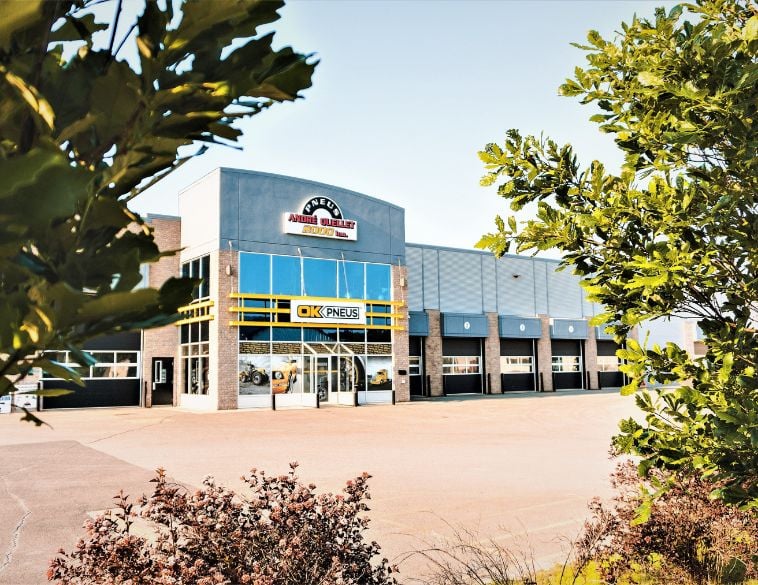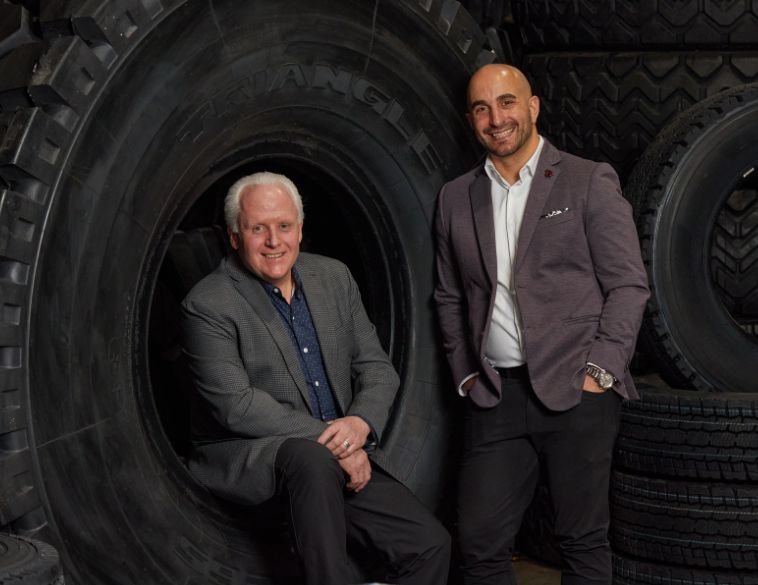Talking about labour scarcity is redundant. Let’s take a look at some of the solutions being considered or applied in the tire centres to improve the situation.
Of course, calls for candidates are still posted on the shop windows of tire dealers, especially in the run-up to the busy tire season. But beyond these seasonal needs, tire centres are also looking for qualified technicians to enable them to enhance their range of car mechanics services, which is now common practice in this segment of the industry.
Marc-André Boisvert, President of the Association des Spécialistes en Pneus et Mécanique du Québec (ASPMQ), offers this perspective to his members:
“Faced with the labour shortage affecting our workshops, it is imperative that we consider different approaches to overcoming this challenge. We are faced with a reality where human resources have become an important issue for the smooth running of our businesses.”
“I encourage you to explore various solutions to make up for this labour shortage. Among the avenues to be explored, I invite you to consider recalling retirees; they have valuable experience that could make a significant contribution to our teams. Similarly, the use of students could be an interesting option for filling certain positions and offering enriching experience to young talent.”
Original paths
He adds that hiring seasonal agricultural workers is also an often underestimated resource, but one that can prove highly effective.
“Finally, international recruitment represents an opportunity to bring new skills and perspectives to our teams,” concludes Boisvert.
Speaking of international recruitment, an approach we’ve been waiting to hear a lot about—it’s the path that Frédéric Ouellet has been following for years. Owner of six tire centres under the OK Tire banner in the province of Quebec (Montmagny, Charest, La Malbaie, Shawinigan-Sud, Cap-de-la-Madeleine and Trois-Rivières), his workshops have long needed these additional human resources, and not just during peak periods.
His shops are spread along the St. Lawrence River and employ around a hundred people. Among them are a dozen Mexicans who have arrived in recent years and are working there on a permanent basis. Ouellet contacted an agency specializing in international recruitment. He explains that the process generally takes between ten months and a year, and that each successful candidate required an investment of around $8,000.
“Of the four who arrived first, three remain, which is a good average,” explains Ouellet. “What’s more, they are trained mechanics who only needed a few adjustments to take their place on the team. In fact, we welcome them and look after them like Quebecers, and we offer them the same conditions once they’re up to speed.”
Like Quebecers
Welcoming foreign workers represents a different level of planning from that of a Quebecer. The first group was entitled to accommodation in a rental building, a situation that has evolved, whereas today the same workers live in a house bought and completely fitted out for them by their employer.
“I find that half the foreign workers come for the money, while the other half want to settle here permanently,” explains the manager. “You can see the commitment of those who want to stay here for the long term, if only by their efforts to learn French. If I want them to stay, we have to do everything we can to keep them, particularly by investing in training the most motivated.”
Will Frédéric Ouellet resort to international recruitment to fill other positions? “We’ve been looking for a technical advisor in Quebec for three months now, without success. I’m definitely going to ask for reinforcements from Mexico or elsewhere,” he replies.
A structured approach

The reason Ouellet turned to a specialist agency to help him find human resources abroad was to make his life easier. Bringing skilled workers here, particularly in light of the recent tightening of entry requirements for Mexican workers, is a real obstacle course.
Karim Mouldi is President of Montreal-based Canari Recrutement International. This certified Canadian immigration consultant has over 20 years’ experience in recruiting skilled foreign workers. He is well acquainted with the tire centres, which turn to him to find qualified mechanics to supplement their services, or seasonal workers to help them out during peak periods.
“Yes, a number of tire and mechanical engineering centres will be turning to foreign labour to meet their temporary and permanent needs,” confirms the expert. “It’s one of the solutions that’s needed in today’s labour market, whether for short or long periods. The important thing is to turn to established firms that won’t just offer you anyone, but people with the right qualifications to meet the needs of the workshops.”
Mouldi works with French-speaking countries, knowing that language is often a barrier to integration and upgrading. “Our agency finds and validates technicians who work like us on vehicles we know. Our team takes care of all the formalities and paperwork, and guarantees customer satisfaction for three months, to ensure a good match between the candidate and the needs of the host company. I can’t change tires, but I can find someone who can,” concludes Mouldi with a smile.



